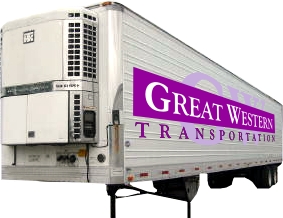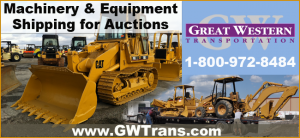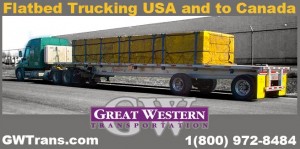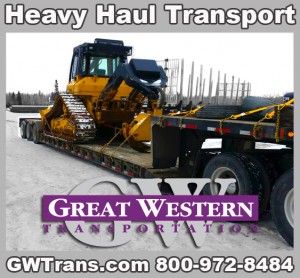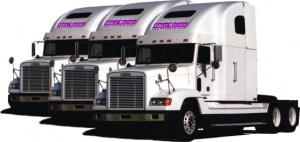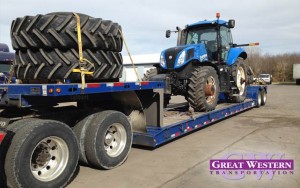Shipments that exceed the legal dimensions and/or weight restrictions established for traveling on local, state and federal highways and roads are considered heavy haul trucking shipments. Because of their size, many heavy haul loads cannot fit within a conventional closed trailer. Likewise, loads that are extremely heavy require special trailers designed to carry the weight safely. When either one, or both of these circumstances arise, it is often necessary to obtain special permits and to plan a specific route before the load can be transported.
Shipment Dimensions
The largest enclosed trailers measure 53 feet long, 99 inches wide and 110 1/4 inches tall on the inside. The height of the exterior of the trailer is typically around 13 1/2 to 14 feet, which allows them room to move under bridges and overpasses without colliding with them. In some cases, however, loads exceed the maximum height and width restrictions, and special trailers must be employed. So called low-boys help to accommodate taller loads by dipping in the center, allowing for taller loads. Other times, loads may exceed the length and width of a standard trailer, meaning they require additional specialized equipment.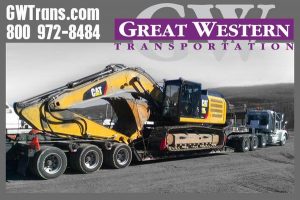
Shipment Weight
As their name implies, heavy haul shipments often weigh incredible amounts. Very large pieces of equipment used in the construction industry are a prime example of the types of things heavy haul truckers carry. In order to protect the integrity of federal, state, and local bridges, roadways and highways, the amount of weight an individual trailer may carry is heavily restricted. Federal regulations state that loads cannot exceed 80,000 pounds gross vehicle weight, 20,000 pound single axle weight, or 34,000 pound tandem axle weight. In addition, seasonal weight restrictions may be implemented by local and state governments as needed.
Special Permits and Routes
Unlike conventional cargo, heavy haul loads often require special permits before they can be shipped. This requires a great deal of planning since permits must be presented before crossing state lines, or entering certain jurisdictions. Special routes may also be required to avoid low-hanging power lines, trees, bridges, signs and other obstructions. In some cases, utility crews and other professionals may have to prepare the route in order to assure safe passage. Failure to secure either of these important factors will lead to delayed delivery and potential fines.
In order to accomplish big things, you need big equipment. But, moving a huge crane, or massive earth mover is no easy task. It requires a great deal of knowledge and experience as well as a thorough understanding of the laws regarding over-sized and heavy loads. Heavy haul trucking companies specialize in moving these loads, assuring regulatory compliance and safe and expedient delivery.





